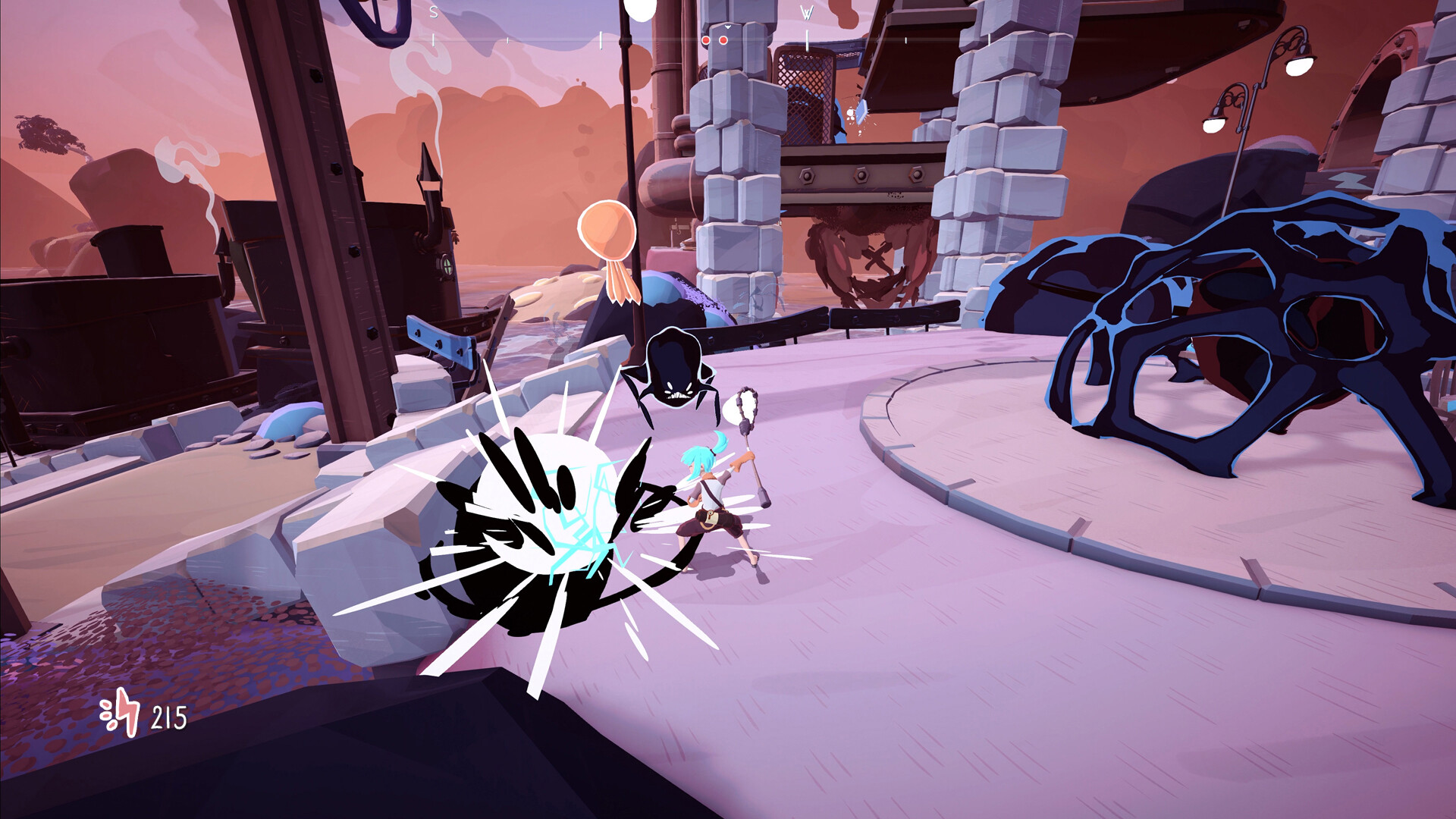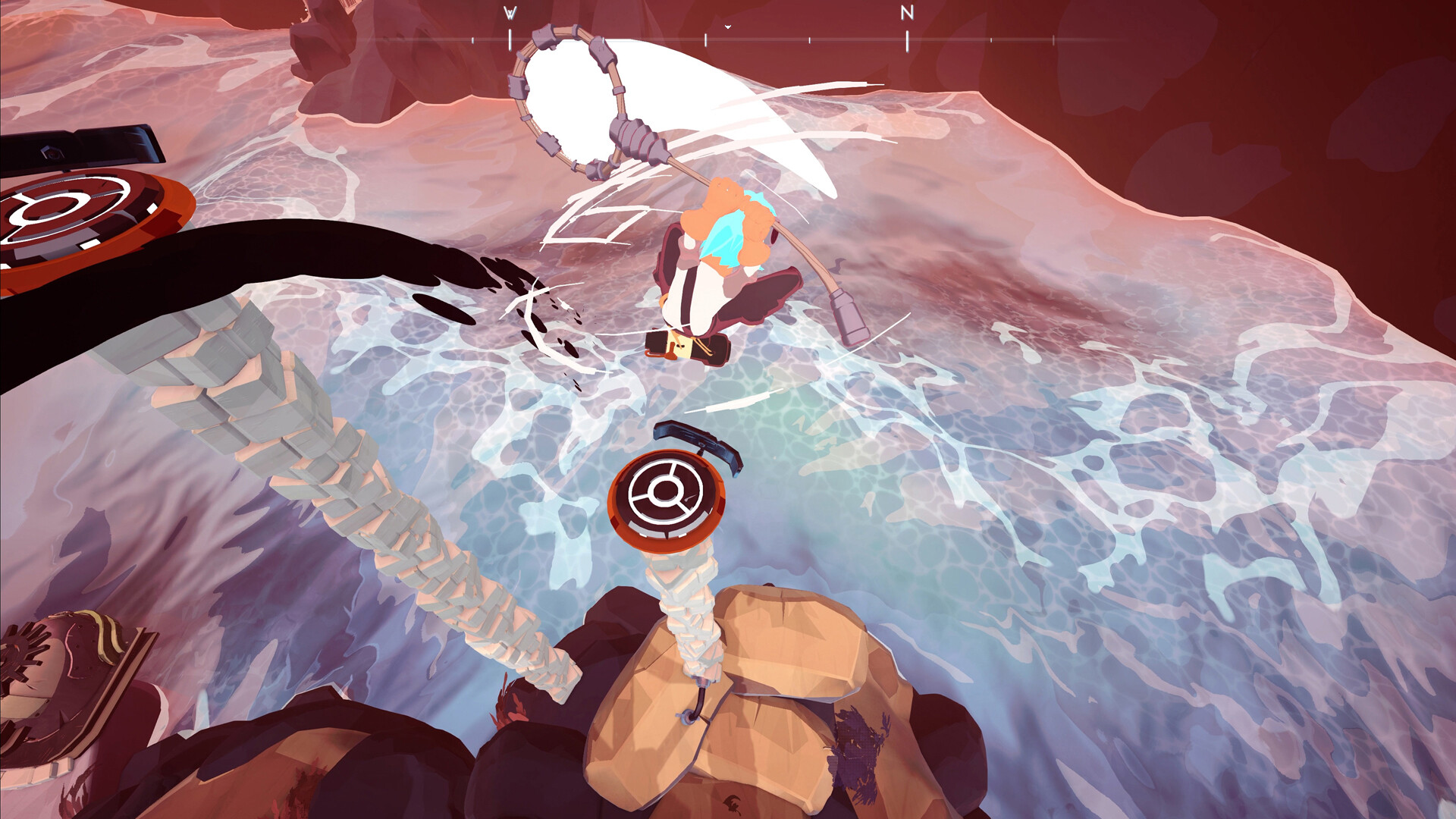Wavetale review
There’s a simplicity to Wavetale that makes it hard not to love. It places an emphasis on freedom and fluid movement instead of complex skill trees and player progression in favour of exploration and fun, with a lack of difficulty and light challenges that make the game better for it, however, it rarely steps out of its comfort zone. It also features a story that reflects themes of climate change and greed, highlighting the errors mankind makes in an effort for control and power at the cost of damaging the natural world.
After the death of her mother, Sigrid has been raised by her grandmother in the Waterworld-esque land of Strandville – a place submerged almost entirely underwater. Despite pockets of civilisation across the crumbling archipelago, there’re still colourful characters to meet, and some interesting locations – at least in their aesthetic – that give you enough reason to travel across the waves in search of a cure to the mysterious Gloom that has taken over.

Sigrid ends up befriending a familiar looking shadow early on, giving her the power to walk on water and use this newfound ability to travel freely across Strandville. The controls are simple, rarely offering you any new abilities apart from one that is more of a way to complete some of the later challenges, but it helps to keep things more focused on the ease of getting around both on water and on land. When gliding across the waves, you can jump higher, as well as dive just under the surface to build up speed. When in the air, you can glide from one area to the next, but too much time soaring will eventually see you plummet to the ground.
There’re also some combat options to fight the plump Gloom monsters, but it’s repetitive and has you pressing the Square/X button repeatedly to vanquish them. It feels more like an afterthought, as the crux of gameplay is traversal. It’s not a massive complaint, but Wavetale could quite of easily skipped combat entirely as it isn’t particularly fun, and often feels unnecessary. What does make movement even more thrilling is the opportunity to make use of speed boosts. By tethering yourself to various platforms and speed portals, Sigrid will fly faster through the air, skate down half pipes and slides, and make her way across locations to either travel or reach her goal faster.

Much of the quests in Wavetale follow a similar pattern, with little change in what Sigrid needs to do. You’ll power up generators and hit switches to route power to certain mechanisms like platforms or doorways, in an effort to return power to her lighthouse. By doing so, you’ll remove the black clouds that cover Strandville and become one step closer to saving your people. This rinse and repeat formula doesn’t offer much else to do, other than fetch quests for certain items scattered across the world, and it soon becomes repetitive. Thankfully, Wavetale isn’t a long game, so these side missions don’t become boring, but with a lack of variety, it may bother some players.
Outside of progressing the story, you can collect various scrapbook entries to build on the lore of the world and buy new outfits, hair dye, and hats to change Sigrid’s appearance. They’re a welcome distraction, but offer little in the way of optional questing that isn’t the aforementioned ‘fetch this and come back with it’ side missions. What Wavetale does well, though, is tell a story that you care about, with family, love, and reconnection at the heart of it. The relationship between Sigrid and her Gran is one we can all relate to, especially growing up and being on both ends on the spectrum.

We all remember wanting to stand on our own feet as a teenager, but now, as a parent, I also see the importance of protecting my kids, much to the chagrin of them, especially when they get frustrated by my need to look after and look out for them. Wavetale culminates in an emotional end, but as the story unfolds, there’s a lot to admire about it, with Granny regaling tales about her marriage and the loss of her soul mate, as well as other NPCs and their own histories.
Wavetale’s traversal is satisfying, and makes much of what you do worth playing, especially as the repetition of objectives never really stepping outside the familiarity it lays out in the early stages. The story is enjoyable, and the art style has shades of Wind Waker that I couldn’t help but admire. It’s a short adventure that doesn’t outstay its welcome, however, I would have liked the chance to explore more, or at least have more to do in the beautifully designed world of Strandville.





